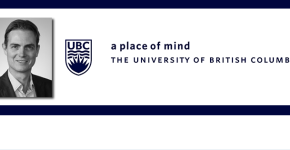 Chemotherapy can save lives but also be debilitating.
Chemotherapy can save lives but also be debilitating.
Mads Daugaard, senior research scientist and assistant professor in the department of urology at the University of British Columbia, explores how a sugar protein may be the answer to an easier method of treating cancer.
Dr. Mads Daugaard is a molecular biologist specialized in tumour-associated stress signaling pathways and tumour targeting systems. He earned his PhD degree from the Faculty of Health Sciences, University of Copenhagen, for his studies on heat shock proteins in relation to cancer cell survival mechanisms. After getting his PhD, Dr. Daugaard received a junior fellowship award to continue his work at the Danish Cancer Society Research Centre on stress signaling pathways related to DNA damage response mechanisms. In 2010, Dr. Daugaard received a research award from the Danish Cancer Society Scientific Committee to do postdoctoral training in molecular pathology at the BC Cancer Research Centre and the Department of Pathology and Laboratory Medicine, University of British Columbia.
Dr. Daugaard’s ongoing research focuses on molecular and biochemical events underlying alternative polyadenylation of mRNAs, chromatin context-dependent DNA repair, and development of resistance to chemotherapy. Another aspect of Dr. Daugaard’s research relates to discovery and development of novel tumour targeting systems based on parasite-derived recombinant proteins relevant for therapeutic and diagnostic applications in cancer.
Dr. Daugaard has published original research in top-tier scientific journals and received competitive international funding support from institutions such as the US Department of Defense, Stand Up 2 Cancer, the Danish Cancer Society, and the Novo Nordisk Foundation. In the 2014 competition, Dr. Daugaard received the Prostate Cancer Canada and Safeway Rising Star Award. Dr. Daugaard has been a board member of the European Workshop on Cell Death scientific committee since 2010.
Dr. Daugaard is co-founder of the Danish biotechnology company VAR2 Pharmaceuticals ApS, where he serves as Chief Scientific Officer (CSO), and Chairman of the board of directors (COB).
Malaria Vaccine and Cancer

Robert Ballard, the man who found the Titanic, says his most interesting discoveries have been the ones he wasn’t looking for.
But the reality is, most of us don’t base our research on serendipity. The need to obtain grants and publish noteworthy results doesn’t lend itself to open-ended pursuits.
I now realize it’s more than just a platitude.
The unintentional discovery in this case was my friend’s – Ali Salanti, at the University of Copenhagen. But I was fortunate to help bring it forward.
While exploring why pregnant women are particularly susceptible to malaria, he discovered that the parasite makes a protein that binds to a particular type of sugar molecule. And this sugar molecule is found only in the placenta.
Such a discovery could help us stop a disease that kills more than 200,000 women a year.
But that same sugar also has been found in various types of cancer. And while it might seem strange for a placenta to share a similar trait with cancer, it does make perfect sense: They both grow rapidly and invade their neighbouring tissues.
So with that in mind, we attached a toxin to the malarial protein, and tested it on mice that had been implanted with various human cancers. The combination significantly shrunk or eradicated the tumours.
But the mice also showed no adverse side-effects. The malarial protein carried the toxin only to cancer cells. As anyone who has undergone chemotherapy knows, the cancer drugs we rely on today are not nearly so precise, and thus can be debilitating despite their effectiveness.
The irony that we might exploit one disease to destroy another is one of those twists of science that reminds me why I seek to understand disease at its most fundamental level.
But I also think it’s nature’s way of telling scientists that we should never discount the possibility of finding answers in the places where we least expect it.
